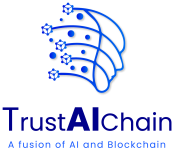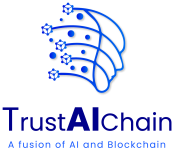Understanding DAOs
DAOs operate on blockchain technology, where rules and governance are encoded in smart contracts. These smart contracts execute automatically when predefined conditions are met, ensuring that the organization runs according to the collective decision-making of its members rather than centralized authorities. Critical features of DAOs include:
- Decentralization: No central authority; decisions are made collectively by token holders.
- Transparency: All transactions and decisions are recorded on the blockchain and are accessible to all members.
- Autonomy: Smart contracts execute decisions automatically without human intervention.
While DAOs offer many advantages, such as reduced operational costs, increased security, and enhanced transparency, they are not without challenges. Issues like slow decision-making processes, inefficient resource allocation, and governance complexities must be addressed. This is where AI comes into play, providing solutions to optimize and improve DAO functionalities.

The Role of AI in Enhancing DAOs
AI has the potential to revolutionize DAOs by automating and optimizing various aspects of their operations. Here are key areas where AI can significantly impact DAOs:
- Optimizing Governance
Governance in DAOs involves decision-making processes that can be slow and cumbersome due to the need for consensus among many participants. AI can streamline these processes through:
- Predictive Analytics: AI algorithms can analyze past voting patterns and predict future outcomes, allowing faster and more informed decision-making. DAOs can preemptively address potential issues and streamline proposal evaluations by identifying likely voting trends.
- Sentiment Analysis:AI can monitor community discussions on social media and forums to gauge member sentiments towards proposals. This real-time feedback helps understand the community’s stance, enabling more responsive governance.
- Automated Moderation: AI can assist in moderating discussions and filtering out spam or irrelevant content, ensuring that only meaningful contributions are considered in decision-making.
- Efficient Resource Management
Effective resource management is crucial for the sustainability of any organization, including DAOs. AI can enhance resource management through:
- Dynamic Resource Allocation:AI can analyze real-time data and allocate resources dynamically based on current needs and priorities. For example, AI-driven algorithms can adjust funding allocations for different projects based on their performance and community support.
- Supply Chain Optimization: In DAOs involved in supply chain management, AI can optimize logistics, inventory management, and demand forecasting. AI can minimize waste, reduce costs, and improve efficiency by analyzing data from various sources.
- Financial Analytics: AI-powered financial analytics can provide insights into spending patterns, investment opportunities, and risk management. This ensures that DAOs make data-driven financial decisions, maximizing returns and minimizing risks.
- Enhancing Transparency
Transparency is a cornerstone of DAOs, and AI can further enhance it by:
- Data Analytics and Visualization: AI can process large volumes of data and present it in easily understandable visual formats. This allows DAO members to quickly grasp the state of the organization, including financial health, project progress, and member contributions.
- Audit and Compliance: AI can continuously monitor transactions and activities within the DAO to ensure compliance with predefined rules and regulations. Automated audits can identify discrepancies, flag suspicious activities, and ensure that all operations are transparent and accountable.
- Decentralized Identity Verification: AI can enhance the security and transparency of member identities within DAOs. By leveraging AI-powered identity verification systems, DAOs can ensure that participants are genuine and prevent Sybil attacks (where a single entity creates multiple fake identities to manipulate the system).

Real-World Applications and Case Studies
Several DAOs are already exploring the integration of AI to enhance their operations. Here are a few notable examples:
- SingularityDAO
SingularityDAO aims to revolutionize decentralized finance (DeFi) by combining AI with blockchain technology. The organization leverages AI to manage dynamic token sets (Dynasets), which are portfolios of cryptocurrencies. AI algorithms analyze market trends and adjust the composition of Dynasets in real-time, optimizing returns for token holders. This approach enhances both governance and resource management within the DAO.
- Aragon
Aragon is a platform that enables users to create and manage DAOs. It has integrated AI-powered tools to enhance governance and transparency. For instance, Aragon’s AI-driven sentiment analysis tool helps gauge community opinions on various proposals, ensuring that decisions align with member preferences. Additionally, AI-powered data visualization tools provide real-time insights into the organization’s activities, improving transparency and accountability.
- Colony
Colony is another platform that facilitates the creation and management of DAOs. It employs AI to optimize resource allocation and task management within the organization. AI algorithms analyze member skills, performance, and availability to assign tasks efficiently. This ensures that resources are utilized effectively and projects are completed on time, enhancing the overall efficiency of the DAO.
Challenges and Considerations
While the integration of AI into DAOs offers numerous benefits, it also presents challenges that need to be addressed:
- Data Privacy
AI requires access to large volumes of data to function effectively. Ensuring the privacy and security of this data is crucial, especially in decentralized environments. Robust encryption and privacy-preserving techniques must be implemented to protect member data.
- Bias and Fairness
AI algorithms can inherit biases from the data they are trained on, leading to unfair decision-making. It is essential to regularly audit AI systems for biases and implement fairness measures to ensure that all members are treated equitably.
- Technical Complexity
Integrating AI with blockchain technology involves technical complexities that require expertise in both fields. DAOs must invest in skilled professionals who design, implement, and maintain AI-powered systems.
Future Prospects
The fusion of AI and DAOs represents a transformative shift in how organizations can operate in the digital age. As AI technology continues to advance, we can expect even more sophisticated applications within DAOs, such as:
- Autonomous DAOs: Fully autonomous organizations where AI handles all aspects of governance, resource management, and decision-making, with minimal human intervention.
- Interoperable DAOs: AI-powered DAOs that can seamlessly interact with other blockchain networks and traditional organizations, enabling cross-platform collaborations and resource sharing.
- AI-Driven Innovation: DAOs focused on AI research and development, where members collectively fund and contribute to AI projects, accelerating technological advancements.

In Summary
The integration of AI into DAOs has the potential to revolutionize decentralized governance, resource management, and transparency. By leveraging AI’s capabilities in predictive analytics, sentiment analysis, dynamic resource allocation, and data visualization, DAOs can overcome existing challenges and unlock new levels of efficiency and effectiveness. As we continue to explore the synergy between AI and blockchain technology, the future of decentralized organizations looks promising, paving the way for a more transparent, efficient, and equitable digital ecosystem.
In this rapidly evolving landscape, staying informed and adaptable is crucial. For those interested in the intersection of AI and blockchain, now is the time to engage with these technologies, explore their potential, and contribute to the ongoing transformation of decentralized governance.







